 W
WThe Professional Air Traffic Controllers Organization or PATCO was a United States trade union that operated from 1968 until its decertification in 1981 following an illegal strike that was broken by the Reagan Administration.
 W
WOn October 23, 1983, two truck bombs struck buildings in Beirut, Lebanon, housing American and French service members of the Multinational Force in Lebanon (MNF), a military peacekeeping operation during the Lebanese Civil War. The attack killed 307 people: 241 U.S. and 58 French military personnel, six civilians, and two attackers.
 W
WThe Bitburg controversy concerned a ceremonial visit by Ronald Reagan, the incumbent President of the United States, to a German military cemetery in Bitburg, West Germany in May 1985. The visit was intended to commemorate the 40th anniversary of the end of World War II in Europe but aroused considerable criticism in the United States and around the world when it became known that 49 of the 2,000 German soldiers buried at the site had been members of the Waffen-SS, the military arm of Nazi Germany's Schutzstaffel (SS). The entire SS was judged to be a criminal organisation at the Nuremberg trials. The fact that Reagan had not been scheduled to visit former concentration camps compounded the controversy and a trip to Bergen-Belsen concentration camp was later added to his itinerary.
 W
WOn July 31, 1987, President Ronald Reagan nominated Judge Robert Bork for Associate Justice of the Supreme Court of the United States to succeed Lewis Powell, who had earlier announced his retirement. At the time of his nomination, Bork was a judge on the United States Court of Appeals for the District of Columbia Circuit, a position to which he was appointed by President Reagan in 1982.
 W
WThe Comprehensive Anti-Apartheid Act of 1986 was a law enacted by the United States Congress. The law imposed sanctions against South Africa and stated five preconditions for lifting the sanctions that would essentially end the system of apartheid, which the latter was under at the time. Most of the sanctions were repealed in July 1991, after South Africa took steps towards meeting the preconditions of the act, with the final vestiges of the act being repealed in November 1993.
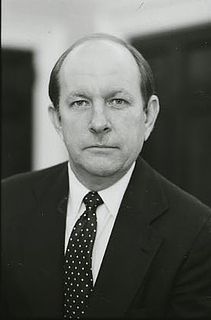 W
WMichael Keith Deaver was a member of President Ronald Reagan's White House staff serving as White House Deputy Chief of Staff under James Baker III and Donald Regan from January 1981 until May 1985.
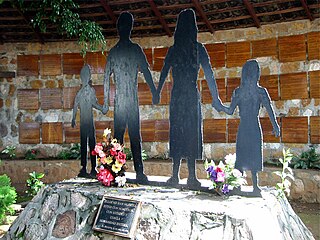 W
WThe El Mozote Massacre took place in and around the village of el Mozote, in Morazán Department, El Salvador, on December 11, 1981 when the Salvadoran Army killed more than 800 civilians during the Salvadoran Civil War. The el Mozote massacre was preceded by La Matanza or the massacre of Pipil peasants in 1932, the Student massacre of 1975, and the Óscar Romero funeral and Sumpul River massacres of 1980. It was followed by the El Calabozo massacre and El Paraíso massacre in 1982, the Tenango-Guadalupe and Tenancingo-Copapayo massacres in 1983, and the Guaslinga-Los Llanitos massacre in 1984.
 W
WAnne Irene McGill Gorsuch Burford, also known as Anne M. Gorsuch (/ˈɡɔːrsətʃ/), was an American attorney and politician. Between 1981 and 1983, while known as Anne M. Gorsuch, she served under President Ronald Reagan as the first female Administrator of the Environmental Protection Agency (EPA). Her son is current Associate Justice of the Supreme Court Neil Gorsuch.
 W
WThe Iran–Contra affair, popularized in Iran as the McFarlane affair, the Iran–Contra scandal, or simply Iran–Contra, was a political scandal in the United States that occurred during the second term of the Reagan Administration. Senior administration officials secretly facilitated the sale of arms to the Khomeini government of the Islamic Republic of Iran, which was the subject of an arms embargo. The administration hoped to use the proceeds of the arms sale to fund the Contras in Nicaragua. Under the Boland Amendment, further funding of the Contras by the government had been prohibited by Congress.
 W
WThe ketchup as a vegetable controversy refers to proposed United States Department of Agriculture (USDA) Food and Nutrition Service (FNS) regulations, early in the presidency of Ronald Reagan, that intended to provide more flexibility in meal planning to local school lunch administrators coping with National School Lunch Plan subsidy cuts enacted by the Omnibus Regulation Acts of 1980 and 1981. The regulations allowed administrators the opportunity to credit items not explicitly listed that met nutritional requirements. While ketchup was not mentioned in the original regulations, pickle relish was used as an example of an item that could count as a vegetable. A similar controversy arose in 2011, when Congress passed a bill prohibiting the USDA from increasing the amount of tomato paste required to constitute a vegetable; the bill allowed pizza with two tablespoons of tomato paste to qualify as a vegetable.
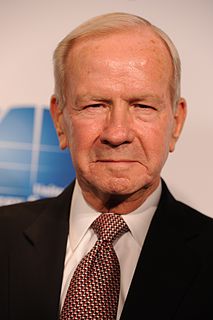 W
WRobert Carl "Bud" McFarlane is a retired Marine Corps officer who served as National Security Advisor to President of the United States Ronald Reagan from 1983 through 1985.
 W
WEdwin Meese III is an American attorney, law professor, author and member of the Republican Party who served in official capacities within the Ronald Reagan Gubernatorial Administration (1967–1974), the Reagan Presidential Transition Team (1980) and the Reagan White House (1981–1985), eventually rising to hold the position of the 75th United States Attorney General (1985–1988), a position from which he resigned following the Wedtech scandal.
 W
WThe Republic of Nicaragua v. The United States of America (1986) was a case where the International Court of Justice (ICJ) held that the U.S. had violated international law by supporting the Contras in their rebellion against the Sandinistas and by mining Nicaragua's harbors. The case was decided in favor of Nicaragua and against the United States with the awarding of reparations to Nicaragua.
 W
WFranklyn Curran "Lyn" Nofziger was an American journalist, conservative Republican political consultant and author. He served as press secretary in Ronald Reagan's administration as Governor of California, and as a White House advisor during the Richard Nixon administration and again during the Reagan presidency.
 W
WMelvyn R. Paisley was appointed United States Assistant Secretary of the Navy by President Ronald Reagan from 1981 to 1987. He was prosecuted in Operation Ill Wind in which he, numerous other government employees and 60 private citizens were arrested. In 1991, he admitted that while in office he had accepted hundreds of thousands of dollars of bribes and was sentenced to four years in prison.
 W
WSamuel Riley Pierce Jr. was Ronald Reagan's Secretary of Housing and Urban Development from January 23, 1981 until January 20, 1989.
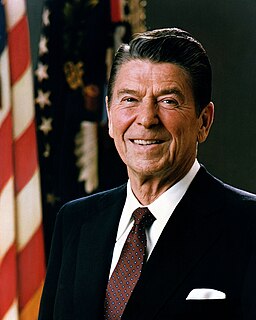 W
WThis article discusses the domestic policy of the Ronald Reagan administration from 1981 to 1989. Reagan's policies stressed conservative economic values, starting with his implementation of supply-side economic policies, dubbed as "Reaganomics" by both supporters and detractors. His policies also included the largest tax cut in American history as well as increased defense spending as part of his Soviet strategy. However, he significantly raised (non-income) taxes four times due to economic conditions and reforms, but the tax reforms instituted during presidency brought top marginal rates to their lowest levels since 1931, such that by 1988, the top US marginal tax rate was 28%.
 W
WThe Strategic Defense Initiative (SDI), nicknamed the "Star Wars program", was a proposed missile defense system intended to protect the United States from attack by ballistic strategic nuclear weapons. The concept was first announced on March 23, 1983 by President Ronald Reagan, a vocal critic of the doctrine of mutually assured destruction (MAD), which he described as a "suicide pact", and called upon American scientists and engineers to develop a system that would render nuclear weapons obsolete.
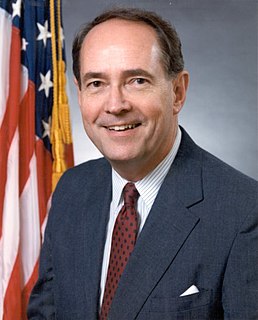 W
WRichard Lewis Thornburgh is an American lawyer, author and Republican politician who served as the 41st governor of Pennsylvania from 1979 to 1987, and then as the U.S. Attorney General from 1988 to 1991. Before his time as attorney general and governor, he served as the United States Attorney for the Western District of Pennsylvania.
 W
WThe United States invasion of Grenada began at dawn on 25 October 1983. The U.S. and a coalition of six Caribbean nations invaded the island nation of Grenada, 100 miles (160 km) north of Venezuela. Codenamed Operation Urgent Fury by the U.S. military, it resulted in military occupation within a few days. It was triggered by the strife within the People's Revolutionary Government which resulted in the house arrest and execution of the previous leader and second Prime Minister of Grenada Maurice Bishop, and the establishment of the Revolutionary Military Council with Hudson Austin as Chairman. The invasion resulted in the appointment of an interim government, followed by democratic elections in 1984. The country has remained a democratic nation since then.
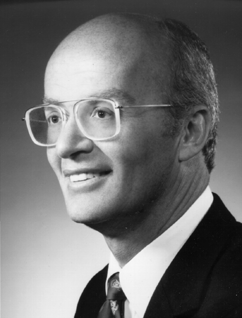 W
WJames Gaius Watt is a public servant who served as U.S. Secretary of the Interior from 1981 to 1983. Often described as "anti-environmentalist", he was one of Ronald Reagan's most controversial cabinet appointments. Watt's pro-development views played an instrumental role in ending the Sagebrush Rebellion.
 W
WCaspar Willard "Cap" Weinberger was an American politician and businessman. As a prominent Republican, he served in a variety of state and federal positions for three decades, including Chairman of the California Republican Party, 1962–68. Most notably he was Secretary of Defense under President Ronald Reagan from 1981 to 1987.